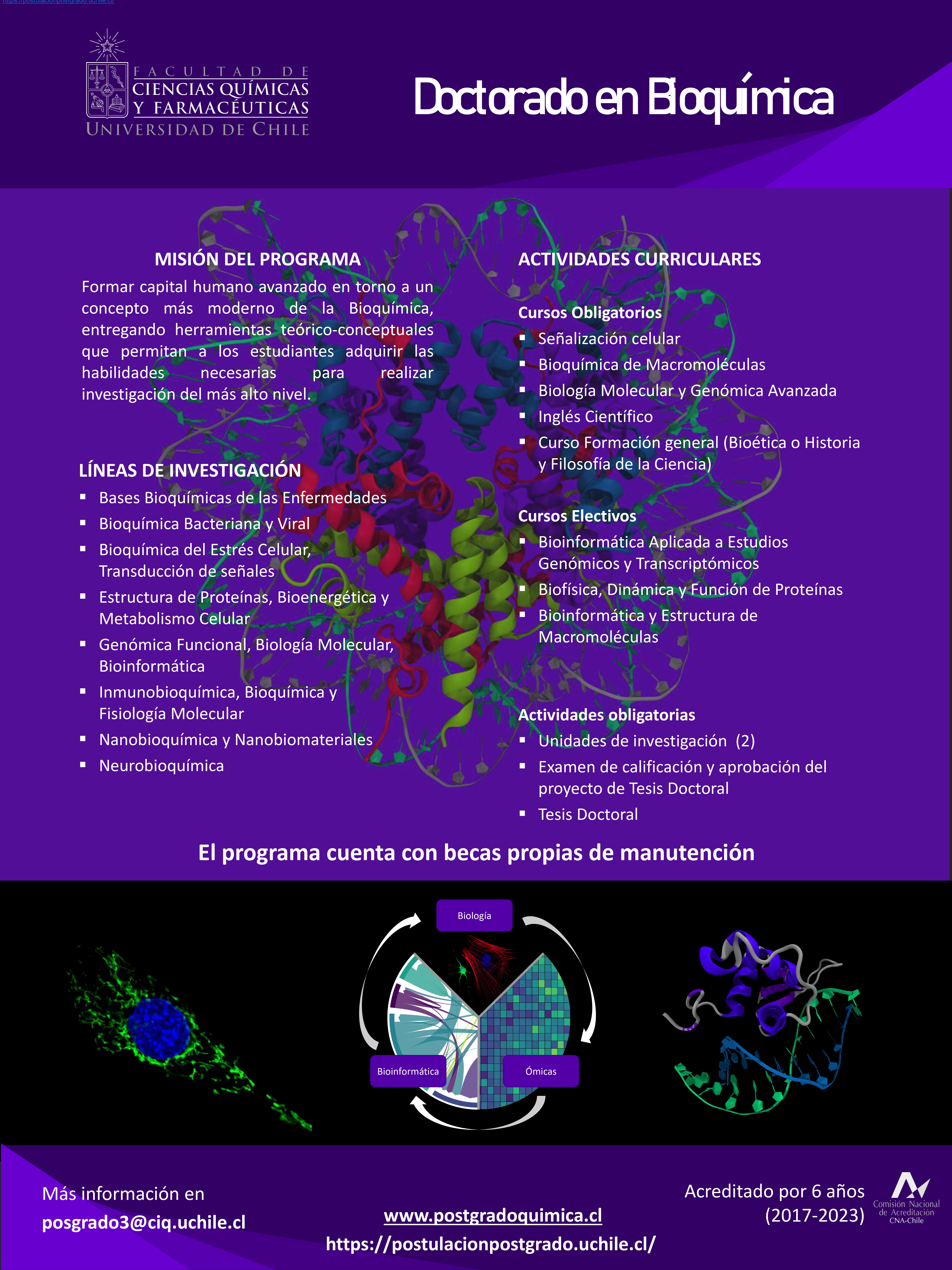PhD in Biochemistry renews and opens its applications by 2020
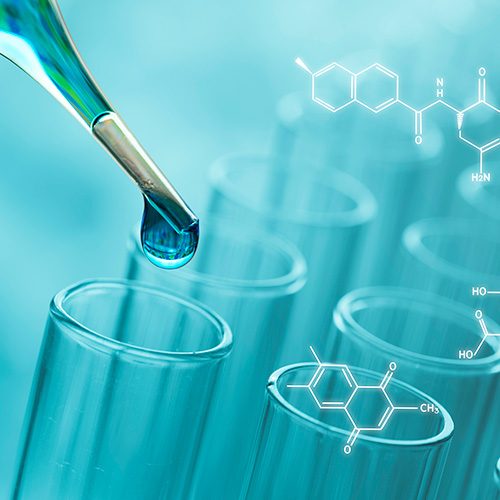
Accredited until 2023, the program is updated after the 41st birthday. More scholarships, incorporation of elective bioinformatics courses, biophysics, dynamics and protein function and consolidation of the research lines are some of the novelties that will present the doctorate in its version 2020.
Nominations for the PhD in Biochemistry of the School of chemical sciences and pharmaceutical of the University of Chile. Created in 1978, is one of the oldest graduate programs in the biological area of the country and through its classrooms more than 140 doctors who are in the academic field, national and foreign public and private companies contributing significantly to the scientific work in the area of biochemistry sciences.
In both, one of the main innovations that the program offers is the flexibilization of its mesh, allowing the student not only to insert himself in the first year to the research group where he will perform the thesis, but also adds to its curriculum elective courses linked to the area of bioinformatics and protein dynamics.
"This program gives students strengths in all areas of biochemistry science, which gives it a distinctive stamp. In addition, the Faculty has state-of-the-art techniques and great equipment available, so students are available to make use of such techniques from the beginning of their research", says Jenny Fiedler, academic of the house of Bello and coordinator of the doctorate in Biochemistry.
Professor Fiedler points out that great young researchers have passed through the program's classrooms. "They have made great contributions, and many have also made a niche in other universities, what's very good. That has to be appreciated very well from the Doctorate", adds the program coordinator.
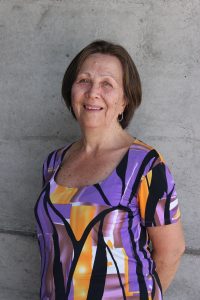
On the other hand, PhD students in Biochemistry will have the opportunity to apply for one of the program's own scholarships, those that increased to support as many PhD students as possible from the first academic year.
In addition, all academics in this graduate cloister have funding to carry out their research – through FONDAP projects, FONDECYT and Research Rings in Science and Technology-. Like this, students will be able to be confident that, if you are interested in any line of research you will have the financial sustenance to be able to develop your thesis. "This is very important right now, where funding for science plummets", dimension to the program coordinator.
Alumni and PhD tell students about their experience
"Part of what I am today is thanks to the PhD in Biochemistry, which is where I formed", emphasizes Valentina Parra, chosen as the best young scientist in the country in 2018 by the Chilean Academy of Sciences. "While I was studying this program, countless opportunities opened up for me, especially to form my own network of contacts and, In addition, to be able to apply for scholarships during this period", adds the researcher.
In fact, while doing his graduate studies, Parra won the Hermann Niemeyer Medal for the best Doctoral Student in Biochemistry or Related Sciences in Chile, the 2011 "Oriana Josseau" Award for the best female student in the PhD program in Biochemistry at the University of Chile and, In addition, FWIS Scholarship "For Women in Science", submitted by UNESCO and l´oreal Chile.
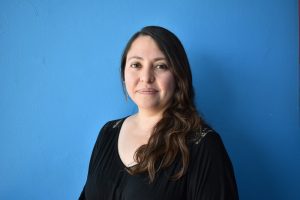
Another factor that the best young scientist in the country highlights is the quality of the academics of the program. "I had the opportunity to meet many excellent teachers who also helped in my training, something I thank to this day", says Parra, who is also a U-academic. Chile and a partner researcher at the Advanced Center for chronic diseases (ACCDiS ).
A similar opinion has Pablo Villalobos, bioinformatics engineer who entered the doctorate in 2015. He is currently developing his thesis and, In addition, works at the Laboratory of Biochemistry and Molecular Biology of the Faculty of Sciences at the U. of Chile with Professor Jorge Babul, with whom he develops his career in the area of protein biophysics.
"My overall experience was very good. Not only the quality of teachers, but also that the program, at the administrative level, It works very well. In addition, there are very good options to do the thesis, in fact it served me a lot to enrich myself as a professional and to know other areas of study", Villalobos points out.
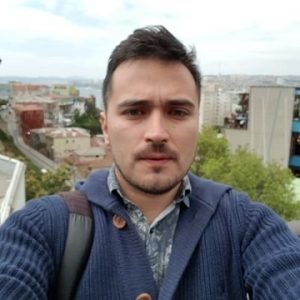
A diverse program for professionals around the world
The PhD in Biochemistry is characterized by the diversity of its students, not only when it comes to their careers of origin, but also in terms of where it came from. This is confirmed by pharmaceutical chemist Jafet Ortiz-Quintero, researcher in the Department of Bioanalysis and Immunology National Autonomous University of Honduras (Unah), who left his native country to pursue this program in Chile
Asked for the reasons that made him choose the house of Bello to study, Ortiz-Quintero comments that "UNAH asked me to do my PhD at a Latin American university that was in a good position in the rankings, so I got to the U. of Chile. Then, digging into my options struck me with the PhD in Biochemistry, specifically because of their curriculum and available lines of research".
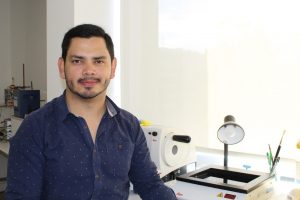
Ortiz-Quintero, who is also a contributor to the FONDAP ACCDiS centre, recommends the program to foreign students who are looking for a high-level university such as the U. of Chile. "That is, it's very important to be clear about the discipline of interest, because the application to the program is very competitive, so it is necessary to prepare the curriculum to enter the doctorate and, In addition, to get financing opportunities".
The PhD in Biochemistry from the Faculty of Chemical and Pharmaceutical Sciences of the University of Chile is accredited until 2023 by the National Accreditation Commission (Cna). Its mission is to form advanced human capital around a more modern concept of biochemistry, giving your students the tools to perform appropriately in the scientific world of the 21st century.
More information and applications in www.postgradoquimica.cl
